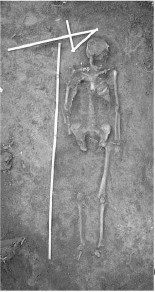Our third departmental research seminar this series was on Friday 16th October. Following the theme of funerary practices, Prof. Florin Curta of the University of Florida presented: “The Enisala grave: Bioarchaeology, social status, health care and ethnicity in early 7th century Dobrudja (Romania).
Prof. Curta provided an alternative view to the interpretation of grave goods and ethnicity. He challenged the assumption that social ethnicity represents social reality and the emphasis placed on material culture items to define group boundary markers. Rather than using items as identity markers, he suggests that they may have been used to create new ethnic identities by combining characteristic elements from other regions and recognised ethnic groups. The example of the Enisala grave provides evidence for such a combination.

